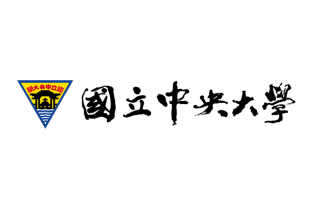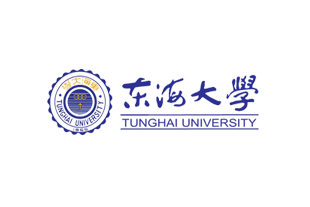Home » Blog » 英文文法情態動詞:Would、Could、Might、May、Should等分別與正確用法
英文文法情態動詞:Would、Could、Might、May、Should等分別與正確用法
作者: Wallace
發布日期: 2017 / 8 / 23, |
123689 |
人已瀏覽 |

以下是與華樂絲合作過的客戶




















本周文章要討論的主題為情態動詞的使用規則,以及如何在不同情境之下運用這類動詞。
情態動詞是一種用來表達情態的助動詞,因此又名為情態助動詞
具體來說,情態動詞是用來表示可能性、能力、意願、義務的一種動詞,其最主要目的為說明後方承接的主要動詞具有什麼樣的功能,和一般動詞的使用有許多不同之處,例句如下:
情態動詞的第三人稱不加s
例句:
He can speak Chinese.
She should be here by 9:00.
無論是現在簡單式或是過去簡單式,皆使用not來表達否定語氣
例句:
He should not be late.
They might not come to the party.
情態動詞不能以過去式或未來式的形式表達
錯誤:He will can go with us.
錯誤:She musted study very hard.
關於情態動詞的使用
情態動詞表達的情態類型如下:
- 可能性
- 能力
- 義務
- 建議
- 許可
- 習慣
所有情態動詞的種類如下:
Can, could, may, might, will, would, must, shall, should, ought to
切記:情態動詞的後方會承接不定詞,但一般不使用to
例句:
You must stop when the traffic lights turn red.
You should see the doctor.
There are a lot of tomatoes in the fridge. You need not buy any.
例外:
You ought to go to the doctor.
1. 可能性
首先,情態動詞可用於表達某件事情在過去/現在/未來發生的確定程度。
例句:
It’s snowing, so it must be very cold outside.
I don’t know where John is. He could have missed the train.
This bill can’t be right. £200 for two cups of coffee!
2. 能力
談到技術或能力時,會使用can或could。
例句:
She can speak six languages.
My grandfather could play golf very well.
I can’t drive.
3. 義務與建議
若要表達某件事情有無必要,或是給予建議,可使用must或should一類的情態動詞。
例句:
Children must do their homework.
We haveto wear a uniform at work.
You should stop smoking.
4. 許可
若要徵詢或給予同意,可使用can、could、may一類的情態動詞。此外,情態動詞也可以用來表達「禁止做某件事」的概念。
例句:
Could I leave early today, please?
You may not use the car tonight.
Can we swim in the lake?
5. 習慣
若談到平常或過去的習慣或行事做法,可使用will或would來表達。
例句:
When I lived in Italy, we would often eat in the restaurant next to my flat.
John will always be late!
情態動詞一覽表:
| 情態動詞 | 解釋 | 表達的情態類型 | 例句 |
must |
to have to | 100% obligation | I must stop when the traffic lights turn red. |
| to be very probable | logical conclusion (deduction) | He must be very tired after such enormous work. | |
must not |
not to be allowed to | prohibition | You must not smoke in the hospital. |
can |
to be able to | ability | I can swim. |
| to be allowed to | permission | Can I use your phone please? | |
| it is possible | possibility | Smoking can cause cancer! | |
could |
to be able to | ability in the past | When I was younger I could stay up all night and not get tired. |
| to be allowed to | more polite permission | Excuse me, could I just say something? | |
| it is possible | possibility | It could rain tomorrow! | |
may |
to be allowed to | permission | May I use your phone please? |
| it is possible, probable | possibility, probability | It may rain tomorrow! | |
might |
to be allowed to | more polite permission | Might I use your phone please? |
| it is possible, probable | weak possibility, probability | I might come and visit you in America next year, if I can save enough money. | |
need |
necessary | necessity | Need I say more? |
need not |
not necessary | lack of necessity/absence of obligation | I need not buy any tomatoes. There are plenty in the fridge. |
should/ought to |
used to say or ask what is the correct or best thing to do | 50% obligation | I should/ought to see a doctor. I have a terrible headache. |
| to suggest an action or to show that it is necessary | advice | You should / ought to revise your lessons. | |
| to be very probable | logical conclusion (deduction) | He should / ought to be very tired after such enormous work. | |
had better |
to suggest an action or to show that it is necessary | advice | You’d better revise your lessons. |
額外相關閱讀推薦:
- 如何確認主詞動詞單複數一致性?
- 研究論文中常見的兩個文法問題:單複數動詞、一般代名詞與關係代名詞
- 學術論文寫作中使用「as」、「because」或「since」用法
- 解析可數與不可數名詞的正確用法: 論文可以使用literatures或informations這類的字眼嗎?
希望我們的英文寫作、英文文法教學及論文期刊投稿指導文章有幫到您!
若有英文編修需求,請試試我們的免費300字試用服務,華樂絲英文編修品質絕對會讓您滿意:
部落格分類標籤: 常見用詞錯誤
訂閱電子報
提供英文文法、中英翻譯、英文寫作技巧以及碩博士生涯規畫等,專為台灣碩博士生與研究者量身打造的學習內容。每週自動寄送至您指定的Email信箱,隨時都能取消訂閱。
超過 315,000 名中港台碩博士生與研究人員訂閱
華樂絲服務項目
文章搜尋
文章分類
演講活動
|
2020.11.27 - 國立臺北科技大學 |
|
2020.11.19 - 工業技術研究院 |
|
2020.11.17 - 國立臺灣大學 |
|
2020.6.16 - 工業技術研究院人力處 |
|
2020.2.6 - 國立交通大學產學運籌中心 |
| 邀請Dr. Steve Wallace演講 |

